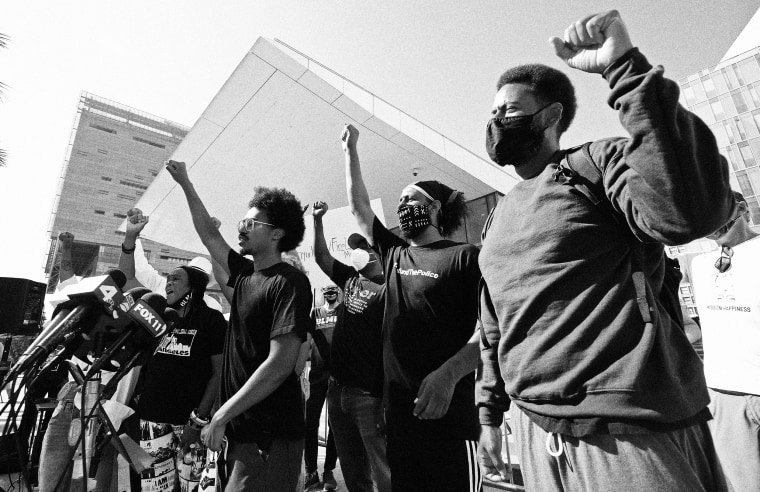In California, a nine-member task force reconvened this week to continue its study and development of proposals for reparations to Black residents, particularly those whose ancestors were enslaved.
The commission, created by the state last year, includes scholars, lawmakers and activists from California. It's the most sweeping effort of its kind in the United States to compensate Black people for the harm caused by generations of slavery, and inequities including housing discrimination and voting discrimination.
But despite this, I still have major concerns.
I appreciate the commission’s goal of providing some form of recompense to Black Californians who, like all Black people, live with some measure of trauma stemming from centuries of state-sanctioned brutality and discrimination. California, in fact, moved earlier this year to return land seized from Black residents by racist officials in the early 1900s. Multiple cities across the nation, including Detroit, have taken similar steps in developing and distributing reparations.

Therein lies my worry: Who’s to say whether these local plans are generous enough — the cities and states themselves? And how will this haphazard, localized approach to reparations impact the justifiable demands Black people continue to make for the federal government to pay out reparations for its role in spreading Black anguish?
In their book "From Here to Equality: Reparations for Black Americans in the 21st Century," scholars William Darity Jr. and A. Kirsten Mullen define reparations as “a program of acknowledgment, redress and closure for a grievous injustice.”
They both criticized “piecemeal” attempts to provide reparations, like the one in California, in an article last year:
Local or piecemeal — little by little — attempts at racial atonement do not constitute reparations proper. In many instances, local initiatives that parade under the label of 'reparations' are not that at all. Local government actions called 'reparations' — whether at the state or municipal level—frequently constitute an admission that atrocities have been committed followed by allocations for research, or the construction of centers, rather than compensatory payments to black Americans. However, these scattered steps to stop an ongoing harm do not heal the wound produced by the harm; usually, they do not involve any compensatory payment. Even if they do afford compensatory payment, a series of local initiatives is highly unlikely to match the minimum bill for black reparations.
The California law establishing the reparations task force acknowledges its own inadequacy, which I find important.
“State level reparations authorized under these provisions are not to be considered a replacement for any reparations enacted at the federal level,” the law states.
I think that recognition is important. Even as cities and states offer their own forms of compensation for their role in committing racist wrongs, that shouldn’t excuse the federal government from its responsibility. But rest assured, that will require repeating in the future.
Related posts:
The antidote to Republicans’ dangerous ‘religious freedom’ charade
The Supreme Court’s conservative justices have no idea how pregnancy works
Ex-KKK leader David Duke takes credit for Donald Trump and Tucker Carlson
Head over to The ReidOut Blog for more.
